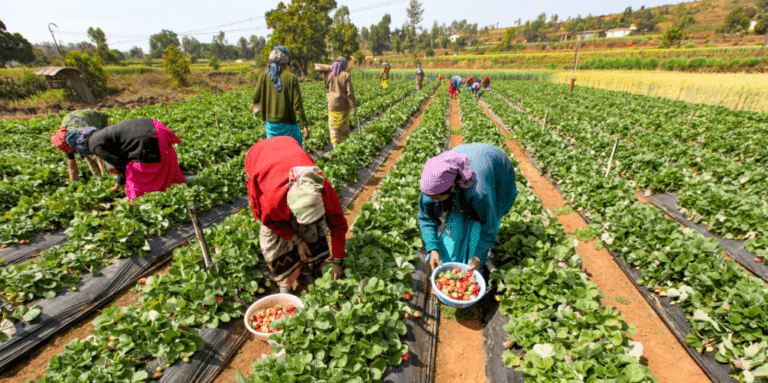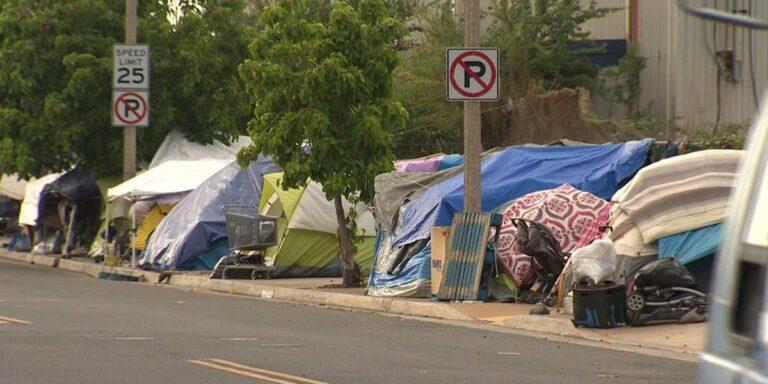The organic food debate is one that continues to rage. So what does the evidence say about organic food? Is it really worth the high cost? Does it protect against cancer and other health conditions? Are some fruit and vegetables worse than others when it comes to buying non-organic?
Here I’ll dive into the topic of organic food, and I’ll share my thoughts on whether to buy organic or not.
What does it mean to be ‘organic’?
‘Organic’ is a system of farming and food production, which has set standards to sustain the health and soil, ecosystems, animals and people. Organic farming doesn’t allow artificial fertilisers, genetic modification, or artificial colours and preservatives in its food production. It also bans chemical pesticides and herbicides, as well as routine antibiotics for animals.
These pesticides and other chemicals are used widely in non-organic farming.
Check out our ghb blog from last year on organic farming.
Will these chemicals end up in my system if I eat non-organic food?
When we eat food with chemicals on them, we will end up ingesting these chemicals. One study from 2022 screened participants for commonly used pesticides, and found residues of insecticides pyrethroid and/or organophosphorus in all urine samples, with residues of herbicide glyphosate in over half of individuals.
Are these chemicals bad for me?
So what does the evidence say? The long-term health consequences of ingesting these pesticides are currently unknown and the research is often conflicting.
Some research suggests that there is no evidence to show that eating organic food decreases our risk of cancer, with the exception of non-Hodgkin lymphoma, a rare type of blood cancer.
However, another larger study from 2018 found that higher consumption of organic food was associated with a reduced risk of cancer.
It’s not just cancer though. Certain pesticides (e.g. organophosphate) can act as endocrine disruptors, interfering with normal hormonal activity and potentially contributing to female infertility and diseases such as PCOS. Some research from 2021 linked urinary phthalate levels in women to decreased rates of pregnancy, increased miscarriage rates, pregnancy complications as well as a lowered ovarian reserve.
Although we’re not clear exactly how, ingesting pesticides also appears to impact our gut microflora, which contributes to the optimal functioning of so many bodily processes, including digestion, immunity, mood, and hormone health.
Pregnancy is another time to focus on organic if you can, as there may be adverse effects associated with some insectices, like organophosphates, DDT and pyrethroids.
So, the bottom line: It appears that these chemicals may potentially have a negative impact on our health (with increased risk of cancers, hormone imbalances and disruption to the gut microbiome), though we don’t know the full extent based on current research.
Is organic food more nutritious?
Again, evidence on this is mixed, but a British Journal of Nutrition review of 343 studies found that organic food was substantially higher in protective antioxidants (as well as lower concentrations of Cadmium and pesticide residues). So it appears that organic food may have some extra nutritional benefits to non-organic food.
But what about the cost?
I hear you – organic food is expensive. And with the cost of everything going up, it might be that you just can’t afford to go organic.
If this is the case, please don’t worry. There are some things you can do to reduce your exposure to the chemicals in non-organic food.
01. Wash your fruit and vegetables using baking soda
This will remove some of the pesticides in non-organic fruit and vegetables. Just fill your sink with water and add 3-4 tablespoons of baking soda, then leave to soak for 15 minutes.
02. Peel your produce
For some vegetables and fruit, the skin will contain more pesticides than the flesh. Things like cucumbers, potatoes and squash can be easily peeled, which might remove some toxins.
03. Choose the Clean 15
Look up the ‘clean 15’ and ‘dirty dozen’ – a list of fruit and vegetables made by the US Environmental Working Group every year. This is a list of fruit and vegetables grown with the most and least pesticides. If you can afford to buy some organic, focus on the ‘dirty dozen’ and don’t worry so much about the ‘clean 15’.
04. Look for tinned, canned, dried or frozen
Organic tinned and canned foods can be a great way to eat more organic food without breaking the bank, as the price difference isn’t that great between organic and non-organic. Also, organic frozen fruit and veggies, as well as organic dried beans and pulses can be a really affordable addition to your diet.
The final word…
So to sum up, there is evidence that eating organic food may be better for our health, by potentially protecting against certain cancers and hormone imbalances, as well as containing more health-promoting antioxidants.
My thoughts on whether to buy organic: If you can afford it, then great! However, if you can’t, please don’t stress about it – the benefits of a diet rich in fruit and vegetables outweigh the risks. If you’re on a budget, following the tips above will help to reduce your toxic load without much additional cost.
If you have any questions about this article, please do get in touch!
The post Is organic food really better for me? appeared first on The Good Health Boutique.
This content was originally published here.



















